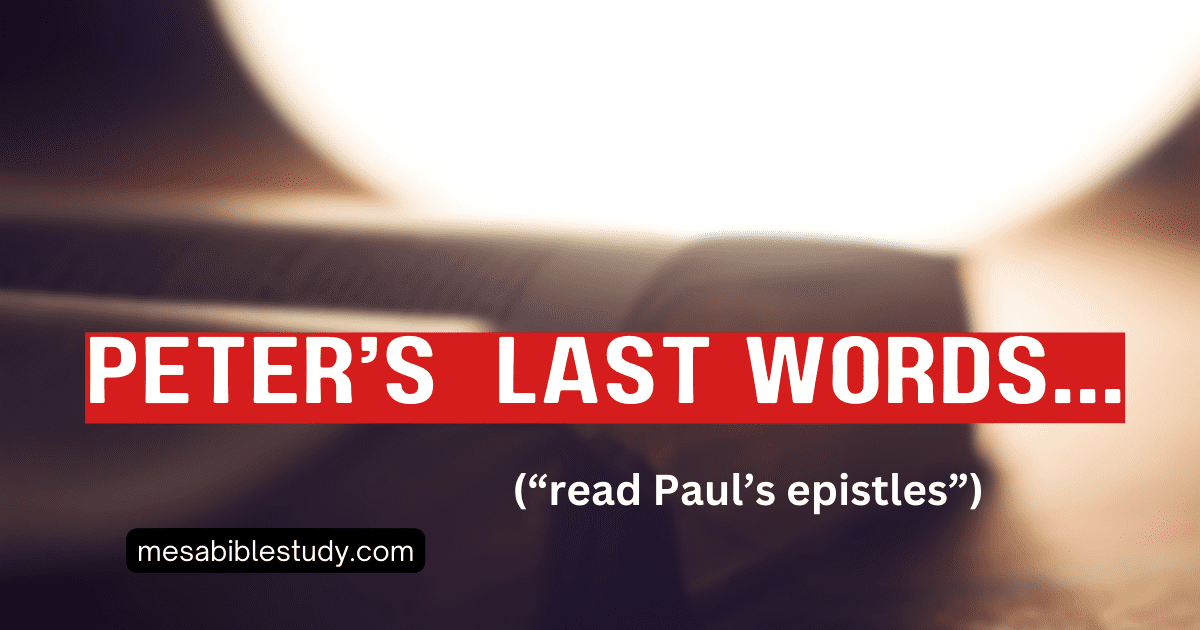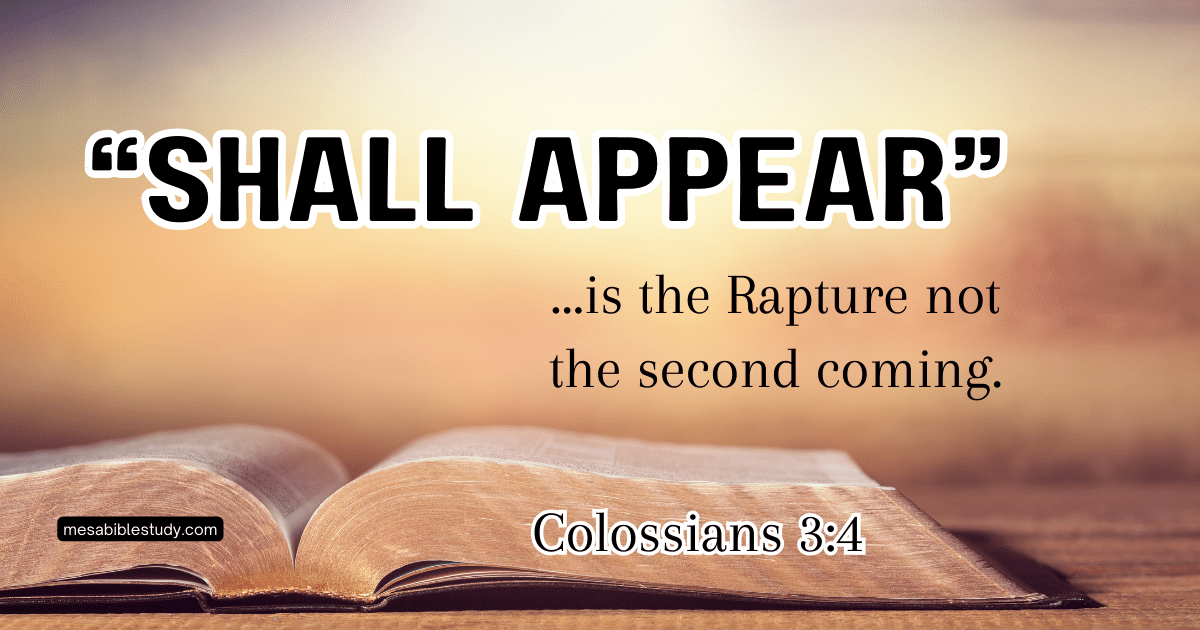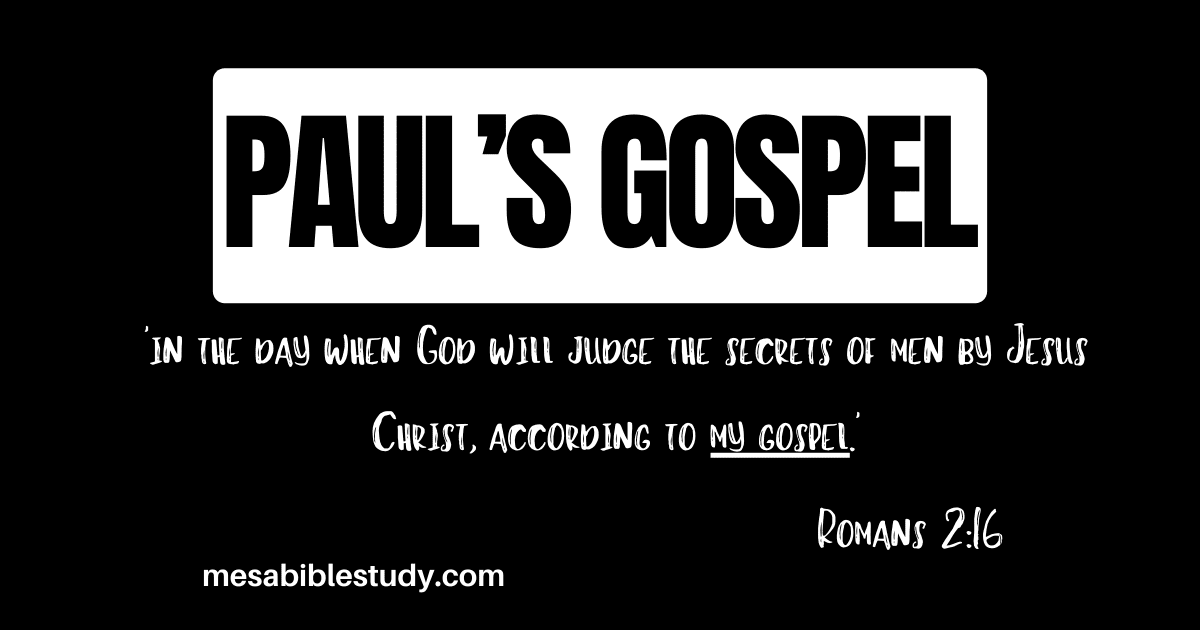But know this, that in the last days perilous times will come: For men will be lovers of themselves, lovers of money, boasters, proud, blasphemers, disobedient to parents, unthankful, unholy, unloving, unforgiving, slanderers, without self-control, brutal, despisers…
Daily Encouragement
Peter’s Instructions and the Wisdom of Paul’s Epistles
In 2 Peter 3:15-18, the apostle Peter provides instructions to his Jewish audience (and for us today), in his last words before martyrdom, urging them to turn to the epistles of Paul for things pertaining to salvation. Rather than pointing to Christ’s earthly…
Unyielding Love: A Light Amidst a Unloving World
Love suffers long and is kind; love does not envy; love does not parade itself, is not puffed up; does not behave rudely, does not seek its own, is not provoked, thinks no evil; does not rejoice in iniquity, but rejoices in the truth; bears all things, believes all…
Colossians 3:4 Refers to the Rapture not the Second Coming
When Christ, who is our life, shall appear, then shall ye also appear with him in glory. Colossians 3:4 In Colossians 3:4, is an often overlooked revelation, one that speaks of a future event when believers shall appear with Christ in glory. Colossians 3:4…
Mankind Will Either be Saved or Judged by Paul’s Gospel
Enveloped within the term “mystery” across Paul’s epistles (Romans 11:25, 16:25; 1 Corinthians 2:7, 4:1-2, 13:2, 14:2, 15:51; Ephesians 1:9, 3:3-6, 3:9, 6:19; Colossians 1:26-27, 2:2, 4:3; 1 Timothy 3:9, 3:16), unfolds divine wisdom given to Paul…
The Mystery or Secret of the Gospel of Grace
Ephesians 6:19 “And for me, that utterance may be given unto me, that I may open my mouth boldly, to make known the mystery (secret) of the gospel.” (As given to Paul and Paul alone in Acts 20:24; I Corinthians 15:1-4; Galatians 1:1, Galatians 1:11-12.)…
Transforming Negativity into Gratitude: A Call to Embrace Positivity
Do you find yourself caught in a cycle of negativity, complaining about every twist and turn of life’s journey? It’s time to break free from the chains of the past, bitterness, despair and embrace the transformative power of gratitude. In a world that…
Israel’s Fall and Gentile Salvation Romans 11:11
‘I say then, have they stumbled that they should fall? Certainly not! But through their fall, to provoke them to jealousy, salvation has come to the Gentiles. ‘ Romans 11:11 In Romans 11:11, the apostle Paul is clearly stating when salvation came to…
The Signs of the Times for the Church “Moral Decay”
The signs of the times before the rapture are sadly missing in much of today’s conversations and teaching about end times. So much of the focus is on the answer the Lord Jesus gave to a question by the apostles in Matthew 24, and Matthew 24 is all tribulation ground….
Unveiling the Mystery of Paul’s Gospel in Romans 16:25
In the closing verses of Romans, the Apostle Paul reveals a mystery that sets his gospel apart from the message proclaimed by Peter and the eleven. Romans 16:25 boldly declares, “Now to Him who is able to establish you according to my gospel and the…









